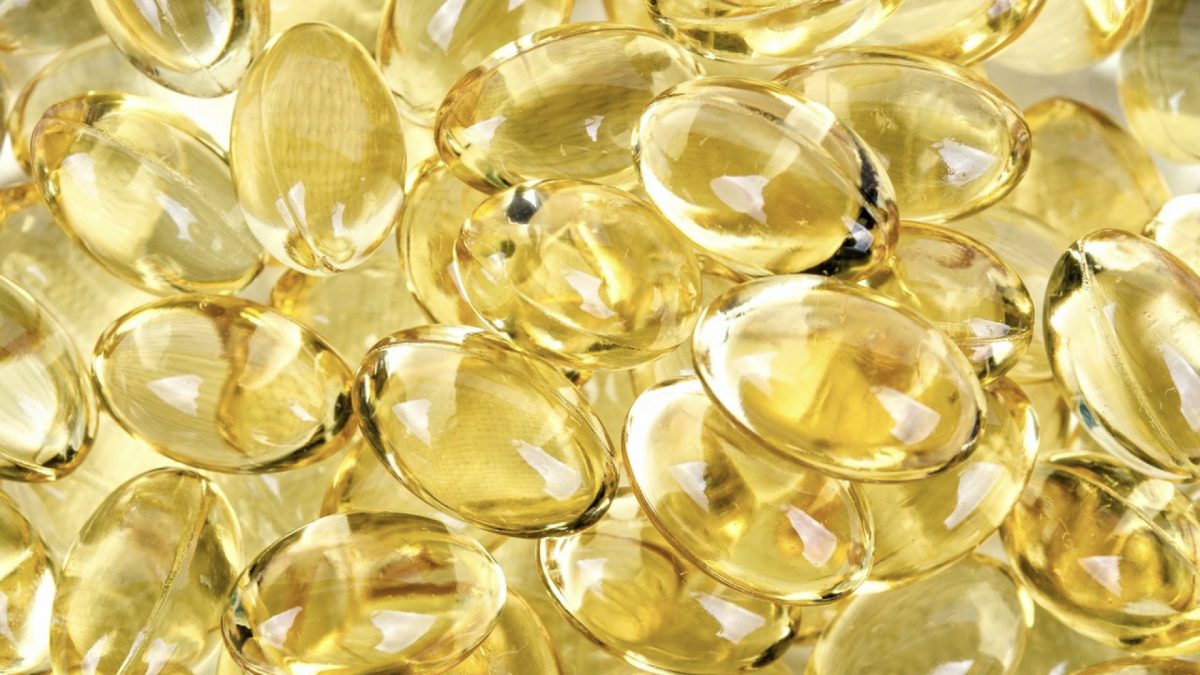It’s been a bad few years for fish oil, as I discuss in my video, Omega 3s, Prostate Cancer, and Atrial Fibrillation. Claims were crushed that the long-chain omega 3s in fish oil—EPA/DHA—would stop the progression of heart disease. Then, DHA was associated with increased risk of prostate cancer and “monumentally” failed to treat macular degeneration. This over-the-top rhetoric sounded a little suspicious, and, indeed, the paper was retracted because the author sells some rival supplement he failed to disclose, but he does have a point.
I covered the fish oil failure for heart disease in my Is Fish Oil Just Snake Oil? video. But, what about the increased cancer risk? Men with the highest circulating levels in their blood of the long-chain omega 3 fat DHA were found to be at higher risk for prostate cancer, though a subsequent compilation of all such studies suggested EPA, the other major long-chain omega 3 in fish and fish oil, may be more closely associated with increased cancer risk. Either way, these long-chain omega 3s have been promoted for prevention of heart disease and cancer. We now know, however, that not only does there appear to be no benefit for death, heart attack, or stroke, there may be an elevation in cancer risk. The general recommendations to increase the intake of these fats should consider its potential risks.
How could eating more fish or fish oil increase cancer risk? Well, there are some industrial pollutants, like PCBs, linked to increased prostate cancer risk, and the “primary source of exposure in the general population is believed to be through diet from fish, meat, and dairy products.” If you do a supermarket survey, the PCBs are highest in freshwater fish and lowest in plant-based foods. Vegans have been tested, and they were found to be significantly less polluted than omnivores of the PCB linked to prostate cancer.
However, the prostate cancer study was done in North America where people don’t eat a lot of fish, and indeed, even the group with the highest DHA levels weren’t that high. So, maybe the confounding factor was meat consumption in general, not just fish. Lower meat consumption may be a reason for the lower rates of prostate cancer in the lower DHA group, as the consumption of well-done meat is associated with an increased risk of prostate cancer, and intake should therefore be restricted.
We also used to think omega 3s could protect us from arrhythmias—abnormal heart rhythms, like atrial fibrillation. Millions suffer from the condition, which causes an irregular heartbeat and a higher risk of stroke and death, but fish and fish oil consumption does not appear effective for preventing it or treating it.
Other arrhythmias can be life-threatening and can cause sudden death. Despite initial encouraging results, more recent studies have not only failed to reduce sudden cardiac death with omega 3s, but have actually increased mortality in cardiac patients. For example, men with heart disease advised to eat more oily fish or supplied with fish oil capsules were found to have a higher risk of cardiac death, possibly because of the contaminants in fish, such as mercury. In either case, given the inconsistent benefits and the potential adverse effects, omega 3s must be prescribed with caution and generalized recommendations to increase fish intake or to take fish oil capsules need to be reconsidered.
I was as surprised as you to learn that fish oil doesn’t help with heart disease. Learn why in my Is Fish Oil Just Snake Oil? video. I do still recommend taking 250 mg daily of pollutant-free (yeast- or algae-derived) long-chain omega-3’s (EPA/DHA).
In terms of PCB contamination, see Food Sources of PCB Chemical Pollutants and PCBs in Children’s Fish Oil Supplements. Our oceans and waterways have become humanity’s sewer—everything eventually flows into the sea. For discussion of all the other industrial contaminants that build up in the aquatic food chain, see:
- Food Sources of Flame-Retardant Chemicals
- Food Sources of Perfluorochemicals
- Fish and Diabetes
- Diabetes and Dioxins
- Pollutants in Salmon and Our Own Fat
- Dioxins in U.S. Farm-Raised Catfish
- Dietary Pollutants May Affect Testosterone Levels
- Flame-Retardant Pollutants and Child Development
- Fish Consumption and Suicide
- How Long to Detox from Fish Before Pregnancy?
For ways to decrease the risk of prostate cancer and slow its progression, see:
- Ex Vivo Cancer Proliferation Bioassay
- Prostate Cancer and Organic Milk vs. Almond Milk
- Flax Seeds vs. Prostate Cancer
- Eggs, Choline, and Cancer
- Prostate Cancer Survival: The A/V Ratio
- Phytates for the Prevention of Cancer
- Preventing Prostate Cancer with Green Tea
- Treating Prostate Cancer with Green Tea
- Changing a Man’s Diet after a Prostate Cancer Diagnosis
In health,
Michael Greger, M.D.
PS: If you haven’t yet, you can subscribe to my free videos here and watch my live, year-in-review presentations:
- 2012: Uprooting the Leading Causes of Death
- 2013: More Than an Apple a Day
- 2014: From Table to Able: Combating Disabling Diseases with Food
- 2015: Food as Medicine: Preventing and Treating the Most Dreaded Diseases with Diet
- 2016: How Not To Die: The Role of Diet in Preventing, Arresting, and Reversing Our Top 15 Killers
